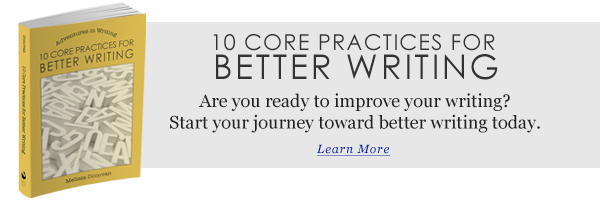Homophones are words that sound alike but have different meanings. Sometimes, they’re also spelled differently: compliment vs. complement.
Since homophones sound the same, they are often misspelled. Sometimes they’re misspelled because the writer doesn’t know there are two different spellings. In other cases, misspelled homophones are the result of typing too fast or failing to proofread carefully.
Spell check will not catch these typos because the spelling is legitimate, even if it’s for a word with a different meaning.
To make it easier to remember which spelling goes with which meaning, we can use mnemonic devices, which are memory tricks. Today, we’re going to learn how to remember the difference between the homophones compliment and complement.
Compliment vs. Complement
The meanings of these two words are fairly similar. However, there is a difference.
Compliment
Compliment can be a noun or a verb. As a noun, it indicates an expression of admiration, a formal act of regard, or good wishes. When you pay someone a compliment, you say something nice about them. To send someone your compliments is to send your regards.
As a verb, compliment simply means the act of offering a compliment. You might compliment someone’s clothes or hair. An act of kindness can also be expressed with the verb compliment: She complimented you by buying one of your books.
Complement
Like its homophone, complement can be a noun or a verb. As a noun, it indicates something that completes, enhances, or perfects another thing. You can use complement for things that go well together:
Root beer complements pizza.
It can also mean a full quantity:
There is a full complement of passengers on the plane.
As a verb, complement is simply the action form of the noun: Root beer really complements this pizza (goes well with).
Be aware that complement has many other related but more detailed definitions that are industry- or field-specific. These are applied in areas of grammar, mathematics, music, and medicine.
Mnemonic Tips for Remembering the Homophones Compliment vs. Complement
The only difference between the spelling of the words compliment and complement is that one has the letter i in the middle and the other has the letter e in the middle. So, all you have to do is figure out whether you need an i or an e.
The opposite of a compliment is an insult. Since insult starts with the letter i, ask whether the opposite is an insult. If it is, then you should use the spelling c-o-m-p-l-i-m-e-n-t.
When one thing complements another, it usually enhances it in some way. It makes the other thing even better. You know that enhance starts with an e, so just remember that if one thing enhances another, it complements it (with an e) and you should use the spelling c-o-m-p-l-e-m-e-n-t..
Got Homophones?
Homophones can be confusing, but by using mnemonic devices, it’s pretty easy to remember which spelling to use. Do homophones ever give you headaches? Are there any specific homophones that either confuse you or annoy you when you see them misspelled? Do you have any tricks for remembering compliment vs. complement? Share your thoughts by leaving a comment!
And keep writing!






Ah. I just remember that complement is spelled with an ‘e’ like complete, since the concepts (making something whole) are similar. And compliment would be the word that’s not spelled that way.
The word “complement” is used in computer science as well. (Ok, I guess you can call that mathematics.) All computer science students (who were awake in class) should know the difference between 1’s complement and 2’s complement. These have to do with how negative numbers are stored and computed inside a computer.
Ah, complete! Of course. That’s excellent. Yes, I found several industry listings for complement but didn’t want to list that many different definitions. Thanks, Kelvin!
Your post is very useful. I have a blog about mnemonic devices and you know very well how to teach this topic. Mnemonic devices are my passion so I’ve decided to start a blog about this. I think I will come back very soon to share more ideas.
Thank you,
John
Mnemonic devices are fun and helpful!
Most annoying to me: There, their, they’re. Consistently misused, particularly on social media sites, and by known teachers I might add. How, one wonders, did these folks get through college? Here’s another one frequently misused: Your, You’re.
Hi Paul. I covered “They’re, there, and their” a while back. I’ll have to add your and you’re one of these days! I would say you’ve called out the two sets of homophones that are most frequently misspelled.
Very informative. I especially liked the mnemonic devices you used. Keep them coming, I love homophones.
Thanks, Elize. I’m glad you found this post helpful.
Am really impressed by the mnemonic device you taught as a device for dealing with homophones.
Thanks, Emman!
Desert and dessert. One ‘s’ = sand, two ‘s’ = something sweet.
Sweat and sweet. ‘A’ = aroma (as in the associated pong), two ‘e’ = is it edible (and/or) enchanting.
And although they don’t sound exactly the same they are similar enough that I always have to pause over ‘quite’ and ‘quiet’ and enunciate the word really slowly to make sure I’ve used the right one.
Thanks for sharing these, Lindsey. I love mnemonic devices!
Thanks for reminding me. I knew this but haven’t thought of the words in years. In the world of writing, authors, and a million books, it’s shocking how many misspelled words and ones used for the wrong meaning. I’m reading Cormac McCarthy’s The Passenger, and good Lord, there are typos everywhere. I can assume that publishers don’t have editors, only computer programs.
You’re welcome!